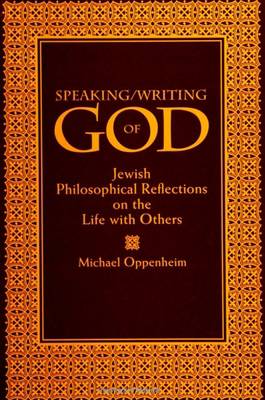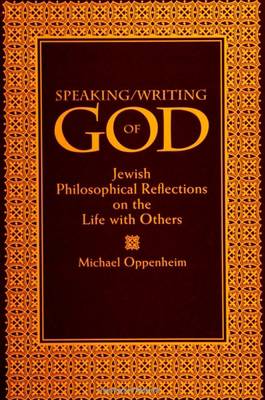
- Retrait gratuit dans votre magasin Club
- 7.000.000 titres dans notre catalogue
- Payer en toute sécurité
- Toujours un magasin près de chez vous
- Retrait gratuit dans votre magasin Club
- 7.000.0000 titres dans notre catalogue
- Payer en toute sécurité
- Toujours un magasin près de chez vous
Description
Identifies and examines the central insights of Franz Rosenzweig and Emmanuel Levinas concerning the religious dimensions of the relationships between persons and extends these insights in order to explore the relevance of religious language to speak of post-Holocaust Jewish life, the critique of the tradition by feminist Jewish philosophers and theologians, and the challenges of religious pluralism.
Speaking/Writing of God explores the manner in which religious language develops in answer to the challenges and promise of three features of the life with others: the encounter between persons, the quest by Jewish women to be accepted-including their distinctiveness/otherness as women-as full participants in Jewish communal life, and the dialogue between Jews and non-Jews.
Although a major stream of modern Jewish philosophy has focused on the transcendent dimension of the relationship between persons, this book studies the contribution of feminist Judaism to modern Jewish philosophy and the impact of religious pluralism on Jewish religious life and thought.
Spécifications
Parties prenantes
- Auteur(s) :
- Editeur:
Contenu
- Nombre de pages :
- 201
- Langue:
- Anglais
- Collection :
Caractéristiques
- EAN:
- 9780791434581
- Date de parution :
- 23-05-97
- Format:
- Livre broché
- Format numérique:
- Trade paperback (VS)
- Dimensions :
- 150 mm x 228 mm
- Poids :
- 294 g

Les avis
Nous publions uniquement les avis qui respectent les conditions requises. Consultez nos conditions pour les avis.






